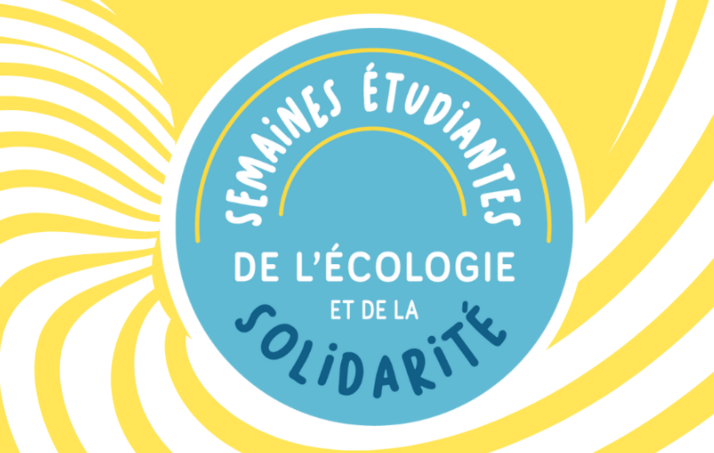 Aktuelles
Aktuelles 
Student weeks for ecology and solidarity: students speak up
The Semaines étudiantes de l'écologie et de la solidarité (SEES, Student week for ecology and solidarity) are the student version of the European Sustainable Development Week. SEES are held from 11 March to 14 April offer various initiatives to gather students and actors acting for more sustainable societies and campuses. This year’s subject is about the Voices of students, a way to let them speak up and let them express their ambitions.
Since 2015, the Student weeks for ecology and solidarity are organised by the Réseau Étudiant pour une Société Écologique et Solidaire (RESES, Student network for ecological and solidarity society), a network of student associations that drive project in relation with ecological and solidarity challenges, such as food, biodiversity, climate and waste. There are two main objectives for this network: 100% students trained and committed to ecological and solidarity, climate and biodiversity challenges, and 100% sustainable campuses trained in ecological transition, whether through their governance, working or trainings.
A well-established network
RESES includes more than 150 member associations, divided in more than 45 cities and over 90 campus. Thanks to this sound establishment, the network supports, brings value and funds student projects emerging from the Student weeks for ecology and solidarity
During these Weeks, the RESES is able to:
- raise awareness of students to environmental and social issues;
- share “sustainable solutions” such as defined in the “Agenda 2023 adopted by the United Nations and its 17 Sustainable Development Goals (SDG) throughout Europe”;
- rally students on these challenges, bring value to student actions launched as part of this initiative and fund them in part.
In concrete terms, RESES drives various types of actions: conferences, exhibitions, workshops, cleanwalks, challenges, movie screenings with discussions, charity spaces, solidarity second-hand clothing, and more. These actions must be launched by student associations, students, higher education institutions, CROUSes or local authorities.
Dozens of actions scheduled
All these certified actions are part of the SESS and already listed, sorted in major subject sections, on the dedicated website. They include several initiatives:
- the Earth Week, a week of awareness-raising to “socio-ecological transition” organised by the Agro Institute of Montpellier;
- book swap, organised by the university library of the IUT in Troyes;
- a workshop on water protection, organised by the CROUS in Strasburg;
- a Week of Solidarity, highlight of the event on the campus of Douai in Villeurbanne;
- an “eco-village” set up by the CROUS of Poitiers on sites in La Rochelle and Niort;
- a conference on “levers of greening of economy” organised by Sciences Po Toulouse;
- the Bascule(s) festival at the University of Bordeaux, to “shed the light and question commitment for environmental and societal transitions”;
- a conference on “responsible digital industry” organised by IMT Atlantique in Brest;
- a “climate painting” workshop organised by the CROUS in Rennes;
- a floral exhibition set up by 450 students from the Institut Agro Rennes-Angers.
Trophies for sustainable actions
Such actions are in line to compete for the SEES Trophies. These trophies encourage student associations to organise sustainable initiatives on their campus or online, and boost and train students about the challenges of ecology and solidarity. For the 2024 edition 2024, the orientation given to the SEES is “the voices of students”, and the Trophy is divided in several subjects in relation with the 17 Sustainable Development Goals:
- a plea to “shake your campus”;
- food, to “better feed on your campus”;
- circular economy “to turn waste into resource”;
- biodiversity “for preserved ecosystems”;
- solidarities “to reduce social gaps”.
At the end of the competition, five student associations that organised actions from 11 March to 14 April 2024 will be recompensed. Each subject will have their own laureate and winners will receive funding and tailor-made support to develop their actions.





Commentaires
Vous devez être connecté pour laisser un commentaire. Connectez-vous.